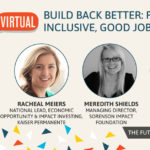 What problem are you addressing? Why should people care?
What problem are you addressing? Why should people care?
The world needs to experience a “mind-shift.” That is, the wealthiest countries and individuals must seek solutions to poverty that reach well beyond traditional philanthropy. Indeed, the only way to actually end poverty is to create opportunities that create yet more opportunities. These opportunities can be found in the markets of developing societies, but they cannot be ideas hatched in the comfort of a library or an apartment. The ideas that will create jobs, meet basic needs and provide for a better quality of life must be sourced directly from the communities that would benefit from such innovation.
With this belief, ThinkImpact (www.thinkimpact.org), the social enterprise that I run, seeks to provide college students and young professionals living and studying in the United States extraordinary access to economies and communities in rural villages in the developing world. While there, they are not asked to complete service projects or conduct research for a paper. Rather, they are expected to fully immerse in the culture, experience life as a local through shared austerity, learn about the vast local resources, skills and other assets that exist within the society, and work in design teams with local community members to unleash the power of those assets.
The curriculum and program that we offer (this year for 44 scholars from 27 schools across the United States) is non-traditional in every sense. It is challenging, uplifting, empowering and at times, stressful. But it is also the most efficient way to change minds from dependence to independence; breaking the endless cycle of poverty once and for all. It is time that community members gain access to ideas and processes that will help them unlock their own potential, creating myriad opportunities in a given locality. Until we break the dependence on aid that is so common in poor communities, we can never imagine an end to poverty.





